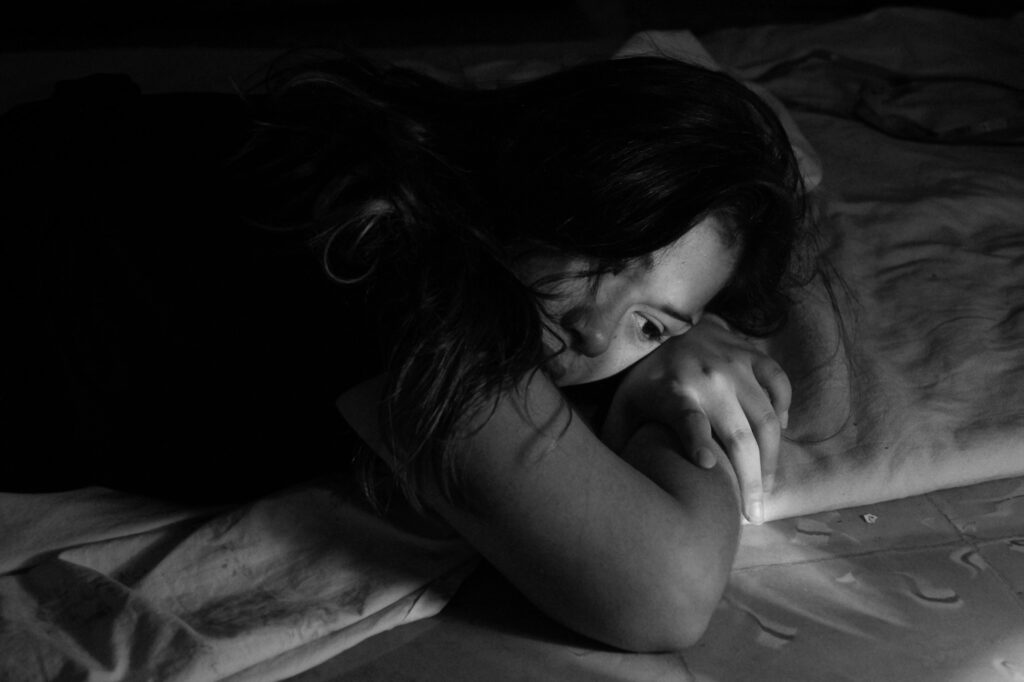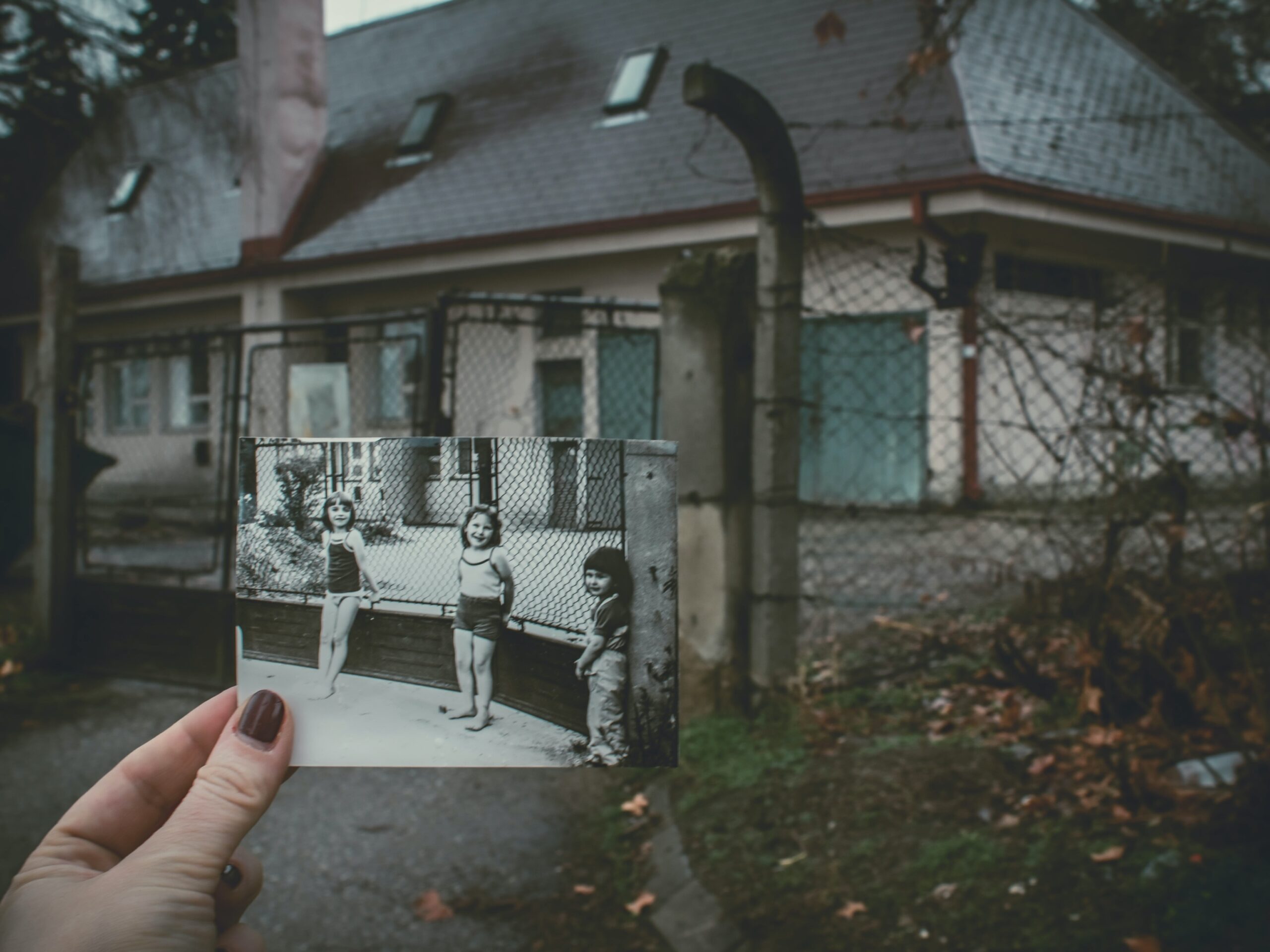How to Deal With Traumatic Childhood Memories

Welcome back, Psych2Goers, and all newcomers as well. This topic is a tough one, and we at Psych2Go understand that this topic may be a rough one to discuss, so before we begin, we need to mention something very important. When it comes to childhood trauma, we can experience many different types of mental or even physical harm that can leave different lasting impressions on many kinds of people, both in small ways, and more severe ways too. Trauma can come from many different sources, including the people or family around us, negative experiences we have growing up, or even heavy responsibilities or expectations that can burden others throughout their childhood, and potentially even beyond. We need to inform all Psych2Goers that the information in this article is not intended nor implied to be a substitute for professional medical advice, diagnosis, or treatment. All content, including text, graphics, images, and information, contained in this article is for general information purposes only and does not replace a consultation with your own doctor/health professional.
With that being said, let’s discuss how to deal with traumatic childhood memories.
1. Understanding your past
Are the details rather foggy about what happened? Or maybe you just aren’t able to quite remember, and the more you think about it, the more you seem to forget? You may even tell yourself that it didn’t matter, didn’t happen, or that you’ve completely moved on from what had happened. But, you might still find the situation resurfacing from time to time, and that’s okay! Sometimes, those with childhood memories that may relate to some sort of abuse can find themselves denying what happened, or even pretending that it doesn’t affect them, or even the opposite. Some may find that they feel stronger because of it, but still struggle to understand why they see it as more of a positive experience than a negative one.
While it’s always good to look on the bright side of difficult situations, it doesn’t mean that we should push away underlying emotions in order to protect ourselves if you feel that they should be heard, or listened to. Low self-esteem, depression, anxiety, severe stress and unhappiness all may result from certain childhood experiences that may be stuck inside your mind (Downey & Crummy, 2022).
If you are experiencing constant anxiety, depression, stress, low self-steem, or any sort of constant negative emotion from childhood trauma, it may be beneficial to identify the root of the stress. Do the negative emotions tend to come up the most when you’re already stressed? Maybe when you get into a fight with a friend or someone you love, you tend to feel an overwhelming pressure of worthlessness, or even the compulsive need to try and fix something. Has this tied into your everyday life? Maybe you feel as though your childhood is a ghost that won’t stop haunting you, or that you feel you’re predetermined to fail or not to move past the trauma because of how severe it was.
Resilience is important, and making active changes to try and handle the control that trauma has on your life can help be accomplished through financial aid, social support, and professional help as well. Taking steps to try and find resources that can help when you don’t have the money, means, or social care to support yourself might be able to help you surmount such a large hurdle. If you feel that you would seek professional help, but don’t have the money, time, or the purpose to do so, looking for resources that can help you obtain professional help at a lower cost, or even no cost at all do exist! Building a social support structure can also help. Reaching out to friends, family, or even support groups online that may be able to help talk through your problems regarding the events can help you have the tools you need to move forward (Downey & Crummy, 2022).
This all starts by understanding why you do or don’t want to seek further aid when it comes to childhood trauma, and your level of comfort sharing with others. Perhaps you may feel more comfortable speaking with a male therapist over a female therapist, or speaking with certain friends but not others about your situation. Finding out what would make you comfortable and why your trauma might still be affecting you is the first step to deciding how you go about reaching out for support, even when you may feel like there is none. Different types of trauma may require different types of treatment. A lot of the time, trauma may result from difficulties with parental figures, as you can’t control the type of family that you’re born into, or the way you’re treated when you’re younger, and have to live with certain types of treatment.
You may have had trouble with your environment growing up as well. Maybe your environment was unsafe to be in, or kept you locked away from the rest of the world. Negative family, friends, and environments can drastically affect the way you perceive things when you’re younger, especially when you can be impressionable when you don’t have the resources to make your own decisions.

2. Taking the first big step
Chances are that if you visited this article, you are still reading on for a reason. Have you sincerely thought if there was something you could do in order to help break free of your trauma? You might find yourself taking action by looking up ways to help deal with the situation. You’ve identified that it’s affecting you—in a way that’s big or small—and you’re trying to find the best way forward. Maybe you decide to talk with a professional about the way you feel, or tell a family member, friend, or other parental figure that you love and trust about what had happened. You might have even already told someone, but are wondering when everything is supposed to be… fixed. Taking the first few steps into fixing traumatic childhood memories can be daunting, but following up with yourself and continuing to take the best steps for you to help aid in the healing process will help you grow and further process your feelings.
Finding patterns or more information about the parties involved can help you overcome some of the original confusion you may have about the event, and help you better process it. By asking yourself more questions, and following through for more answers, you can develop ways that you can avoid potential triggers that may affect you, and surround yourself with more positive reinforcement methods. You may wish to identify how you felt in the moment, and how remembering the event affects you. Has it happened lots of times, or was it one scary event? Did you live through a traumatic event for many years, and how did you feel once it was over? Was there anyone with you that you feel you could talk to about the situation? Has this sort of thing happened before to your family, friends, or anyone you knew growing up? What makes you think about the situation, and what periods of time do you find yourself thinking about it the most? Does your culture, gender, race, or otherwise factor in with how you feel about the situation (Peterson, 2018)?
By answering these questions honestly, you may be able to develop certain strategies and recognize patterns to avoid in the future, or even now, if you feel as though you tend to “relapse” into thinking about some of the traumatic events. Finding the right strategies for you as an individual can also help, especially when it comes to methods such as Cognitive Behavioral Therapy (CBT). Cognitive Behavioral Therapy varies in its effectiveness from person to person, but has been cited to potentially help with reoccuring nightmares or heavy negative emotions if you tend to experience them often (Downey & Crummy, 2022).
Cognitive Behavioral Therapy has been scientifically proven (in some circumstances) to be more effective than psychiatric medications or other psychological methods of theraputic help according to the American Psychological Association. By changing behavioral patterns that you may find yourself getting stuck into, you can develop healthier patterns that may help lead you to better ways of thinking, and your capacity to process difficult situations or traumatic experiences (What is cognitive behavioral therapy? 2017). Although, definitely not the only form of psychological or theraputic help, taking steps to find healthy coping mechanisms that can help improve your quality of life, and sticking to them can make a world of a difference.
Part of identifying what types of behavioral patterns or thought patterns you may need help correcting, is learning about what types of trauma you may experience as you’re growing up.
Did you ever feel neglected growing up? That you had to live and make most of your decisions without any guidance or care along the way? Or maybe you felt as though you had to “grow up earlier” than most people you know. Having maturity at a very young age to take care of yourself and make sure that your needs are met may just be a sign of trauma. Signs of self reliance and burnout to ensure your own safety, or being a “workaholic” might also be telltale signs that you didn’t quite get the support you needed as you were growing up.
Corporeal punishment is a type of punishment that includes physical correction in order to discipline another person. Sometimes this behavior can be exhibited by parents in excess under large amounts of stress, or that are suffering from mental illness or insecurities that they have yet to overcome. This may or may not be influenced by the use of drugs or alcohol, being a single parent, or lacking certain emotional or social skills to deal with difficult situations.
Trauma can result from many different situations in many different ways. If you felt as though you have gone through any sort of mix of abuse or experienced previous trauma due to any combination of previous behaviors from your parents, family member, or someone you knew in your childhood, this may help you single out the types of trauma you may have experienced, and piece together the puzzle of the different factors that may have contributed towards the problems you experienced in your youth.

3. The journey ahead
As you come to identify all your feelings, work through treatments or support from others, and start to make consistent changes to your trauma, you may notice improvement, or even signs that may indicate that you’re starting to heal from your past experiences. These are all wonderful signs. The feeling of relief, comfort, or closure as you confront time’s past can be invigorating and empowering to you.
But it’s very important to not get burned out with trying to find the answers. When you tend to go through changes, soul-searching escapades, or trying to find the answer to a very complicated question, you could get so caught up in trying to find closure, that you might push yourself too hard, too quickly. Keep in mind that your trauma may not have just one answer, or it may not even have a direct answer at all. In the most unlikely of places, we may find an answer in areas we may not expect. Keeping an open mind when approaching these issues can make a huge difference in overcoming it.
Take your time to treat yourself. Unraveling any sort of traumatic event may take a toll on you, and cause you to face things you may not be so comfortable with. Breaking out of your comfort zone for a reason that may be beneficial to you is key, and being gentle with your feelings, moods, and emotions when processing the past can make a world of a difference. Keeping in mind valuable resources such as The Childhelp National Child Abuse Hotline (https://childhelphotline.org/) can help you feel more connected to others who are ready to listen, and help you pace yourself through the best, and worst of it all (Thompson, 2021).

Concluding Remarks
We sincerely hope that our words may have helped spark some ideas, ways to cope, or even a small step forward for anyone dealing with traumatic childhood memories. We don’t get to choose how we grow up, or what experiences we must live through when we’re so little, but we can find ways to improve things for the future.
Thank you so much for reading this article, your constantly love and support helps us make psychology more accessible to people around the world. If you found this article helpful, why not leave a comment about how it may have helped you, or about any ideas or ways that you deal with childhood trauma? We would love to hear and take the time to listen to any experiences you may have. Thank you so much, Psych2Goers!
Further viewing:
https://www.nctsn.org/what-is-child-trauma/trauma-types
References
American Psychological Association. (2017, July). What is cognitive behavioral therapy? American Psychological Association. Retrieved from https://www.apa.org/ptsd-guideline/patients-and-families/cognitive-behavioral
Downey, C., & Crummy, A. (2022). The impact of childhood trauma on children’s wellbeing and adult behavior. European Journal of Trauma & Dissociation, 6(1), 100237.
Peterson, S. (2018, November 5). About child trauma. The National Child Traumatic Stress Network. Retrieved from https://www.nctsn.org/what-is-child-trauma/about-child-trauma
Thompson, S. (2021, July 25). 8 Signs of Childhood Emotional Neglect. YouTube.com. Retrieved from https://www.youtube.com/watch?v=jv8onEy2Fzs



Responses